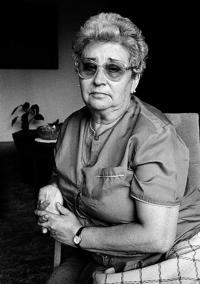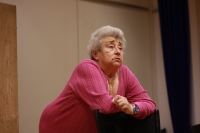I don’t harbour any hatred but my heart still aches

Download image
Bedřiška Felixová was born on the 17th of January in 1935 in Brno as the only child of a Jewish clerk, Gustav Burgmann, and his wife Regina Burgmannová, a dressmaker. Her parents had met in a café in Brno and they got married in 1927. Towards the end of the 1930’s, the Nazi Germany was rising in power and Bedřiška’s father was advised to move to the United States, the family however chose to remain in Brno. They were summoned for a transport and on the 31st of March of 1942, they boarded a train that left Brno for the Terezín where the Nazi administration set up the so-called ghetto. Shortly after their arrival Bedřiška’s seventy-year-old grandmother died. In Terezín, Bedřiška and her mother Regina at first worked in slicing mica, then they got transferred into a sewing workshop. Gustav Burgmann was worried about his wife and daughter and he would bring them his food rations but in the autumn of 1944, he was sent with a transport to Auschwitz, never to return. In May 1945, Terezín was liberated by the Red Army and both women were able to return to Brno.



